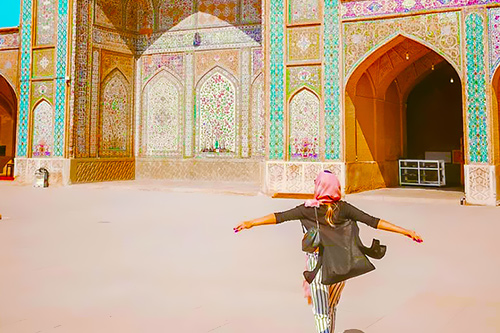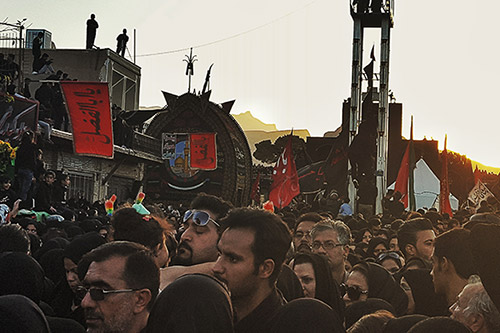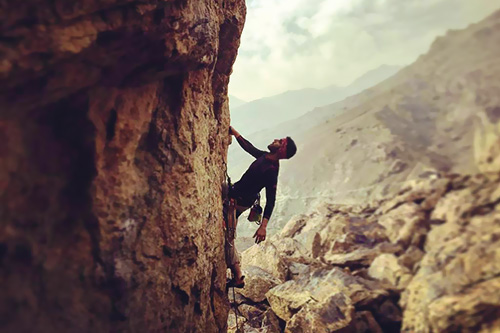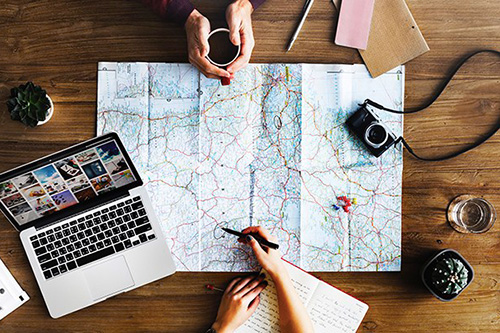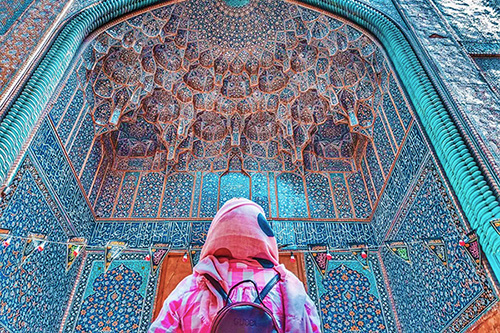 Signin with Google
Signin with Google Signin with Facebook
Signin with Facebook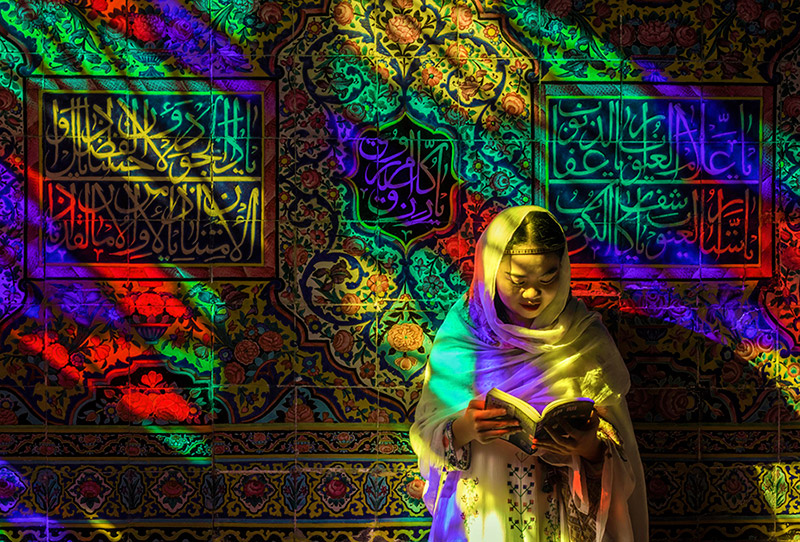 About Iran
About IranTop 10 Hot Photography Spots Around Iran
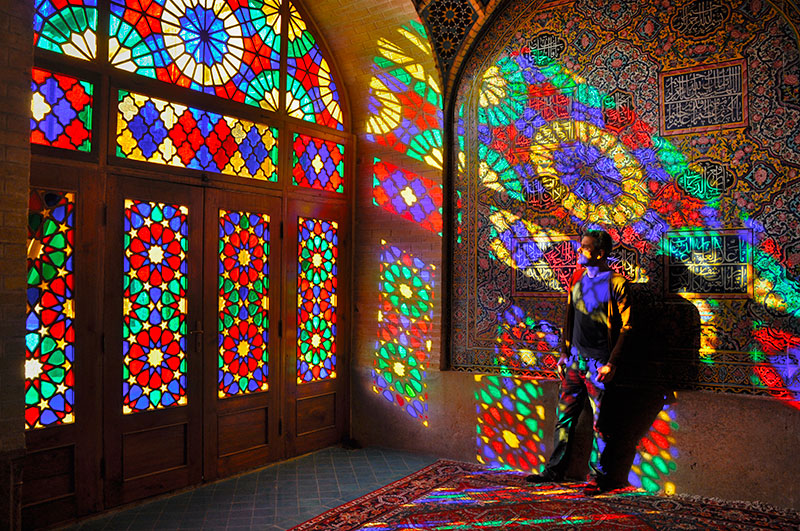
Travellers often seek unique locations and landscapes worth visiting and photographing. The ancient history, natural wonders and detailed architecture make Iran a dream destination many people tend to underestimate. Luckily, the global rise in social media blogging and tourism content creation has brought awareness to world travellers and photographers, when it comes to choosing picture-perfect locations. Below is a list of the top ten hot spots in Iran worth visiting and capturing with your camera.
#10 Golestan Palace/ Tehran
A visit to Tehran is incomplete without taking a tour of the Versailles of Tehran, the extravagant Golestan Palace. This stunning UNESCO-listed site has been captured by so many bloggers, upon visits from all around the globe. The historical complex building dates back to the Safavid dynasty. It consists of spectacular mansions and halls filled with the best Persian artwork, mirrored walls and ceilings. The exterior walls are ornamented with a backdrop of colourful mosaics and tiles. This 400-year-old architectural masterpiece is on the hot-spot list of many photographers.
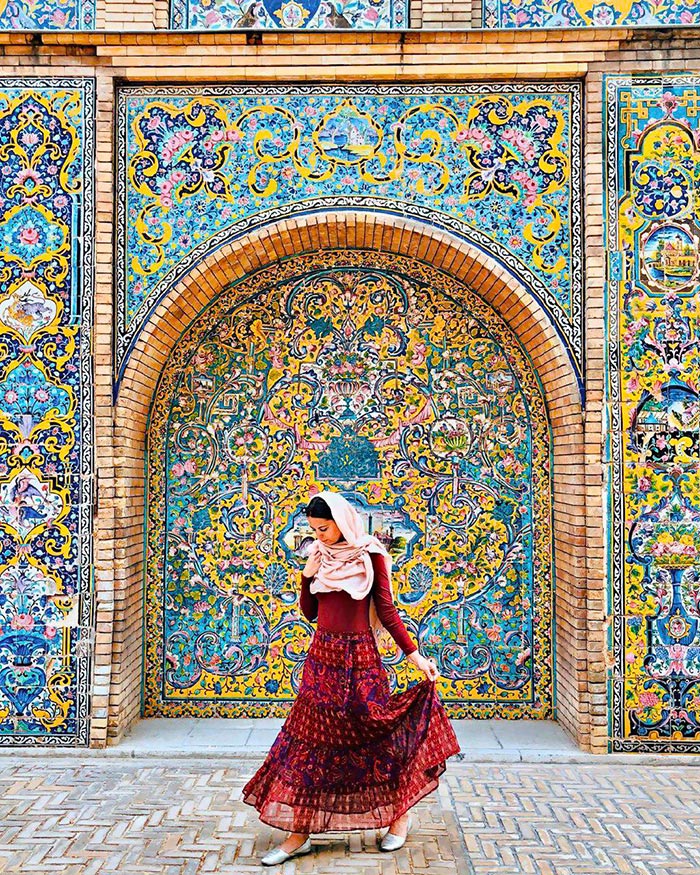
#9 The Azadi Tower/ Tehran
The Azadi Tower (Freedom Tower) is the western gateway of Tehran, a marble structure built in the late 1960s. The 45m tall Azadi Tower has been the most famous landmark of Tehran same as what Eiffel Tower is to Paris. This architectural masterpiece stands in the middle of a square with the same name and hosts a complex of museums. The modernity of this structure is surrounded by a luscious green park and gives a unique frame from each angle and side. Capture the view of snow-capped Alborz mountains in the backdrop which creates a picture-perfect shot for Tehran visitors.
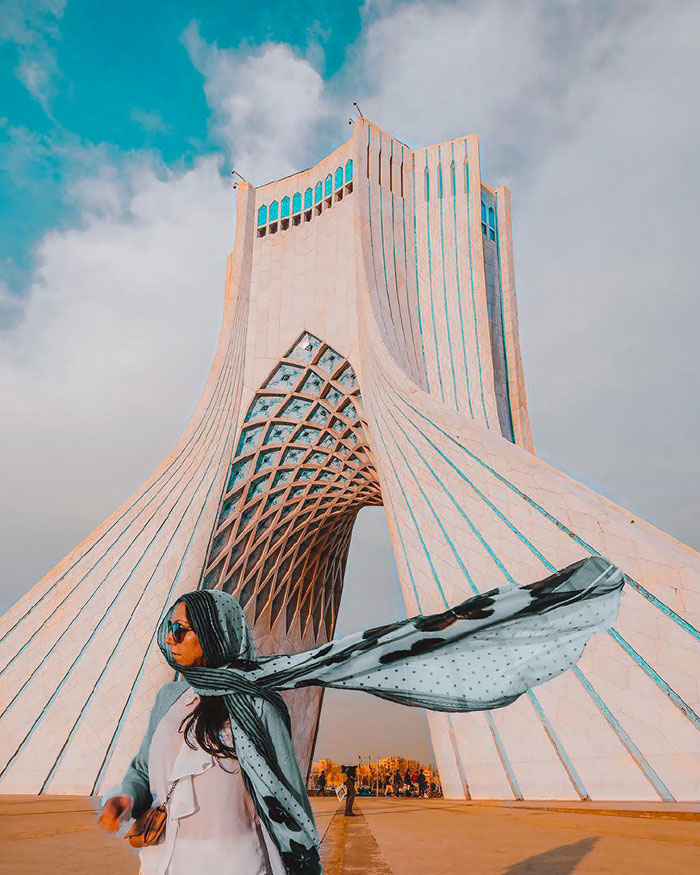
#8 Kandovan Village/ East Azerbaijan Province
The mysterious ancient village of Kandovan is located near the big city of Tabriz. The entire village is covered with cave-like dwellings carved out of mountains. This 13th-century rocky village in Iran resembles Cappadocia in Turkey. The vibrant exhibition of inhabited rocky houses formed by volcano eruptions creates a remarkable architecture that makes Kandovan a wonder in Iran. The beauty of the village creates glorious opportunities for photographers to take advantage of.
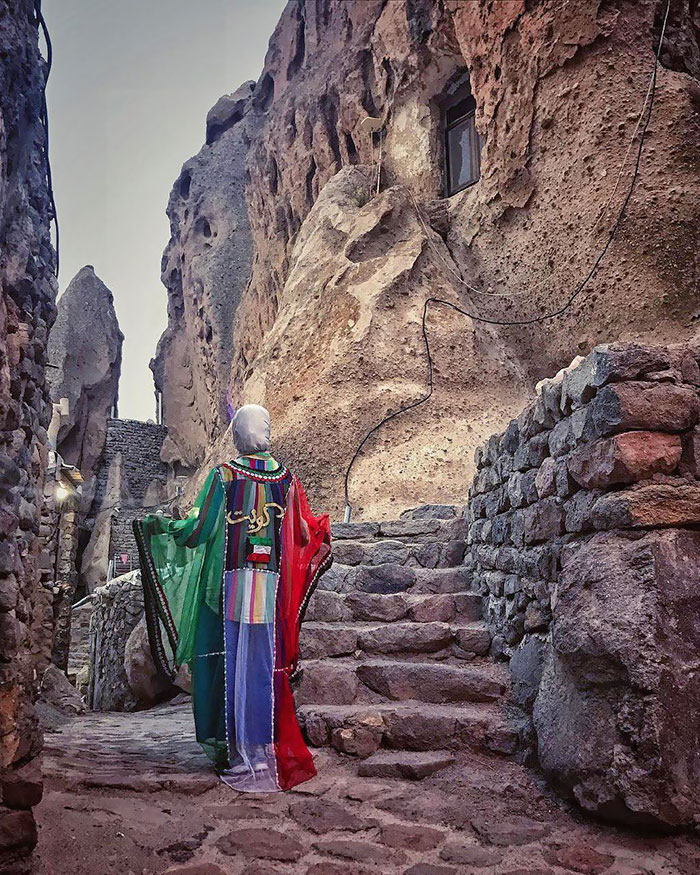
#7 Sultan Amir Ahmad Bathhouse/ Kashan
A traditional Iranian bathhouse built in the 16th century, Sultan Amir Ahmad Bathhouse is a hidden gem in an old alleyway in the city of Kashan. The combination of turquoise blue and gold tile-work, arch-like ceilings, eye-catching mosaics and traditional paintings on the walls are striking features of Persian architecture. The pool in the centre of the main hall reflects the meditative ambience. Don't miss climbing up the stairs to the famous rooftop of the bathhouse. There are multiple domes scattered all across the roof that contain convex glasses, to provide enough lighting to the bathhouse. From atop, you can get a great panoramic shot of Kashan.
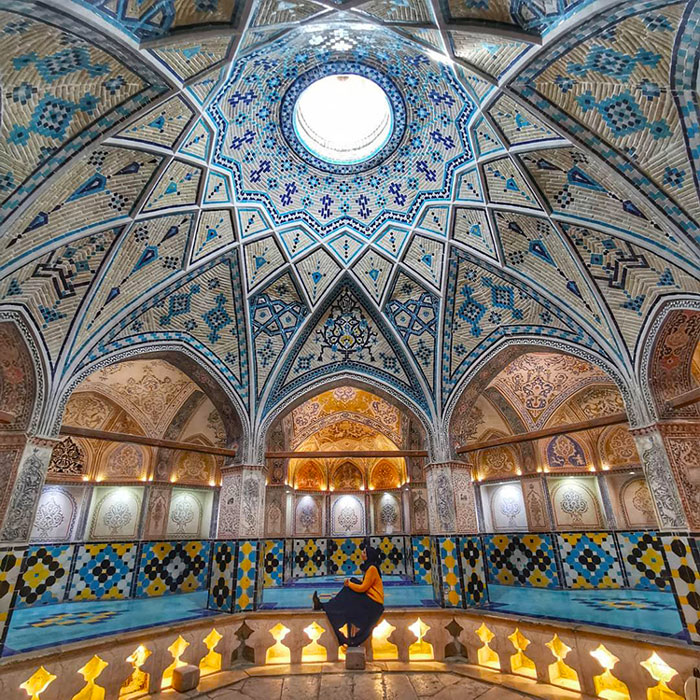
#6 The rooftop garden of Badgirs and earthen alleyways/ Yazd
Registered in the list of UNESCO World Heritage to define a dreamy alive oasis in the heart of the desert lands. Yazd connects the blue sky to the roofed narrow alleyways and tall earthen wind towers. For the beauty observers, this peaceful, free destination is a must-see location in the central plateau. Catch the sight of the sunset over one of the rooftop cafes in Yazd and picture the moment of the sun's farewell when it gets to fade into the flat horizon. Step into the khaki alleys, and listen to the wind's melody being whispered in the curves of alleyways. People like to call this city a wonderland for photographers.
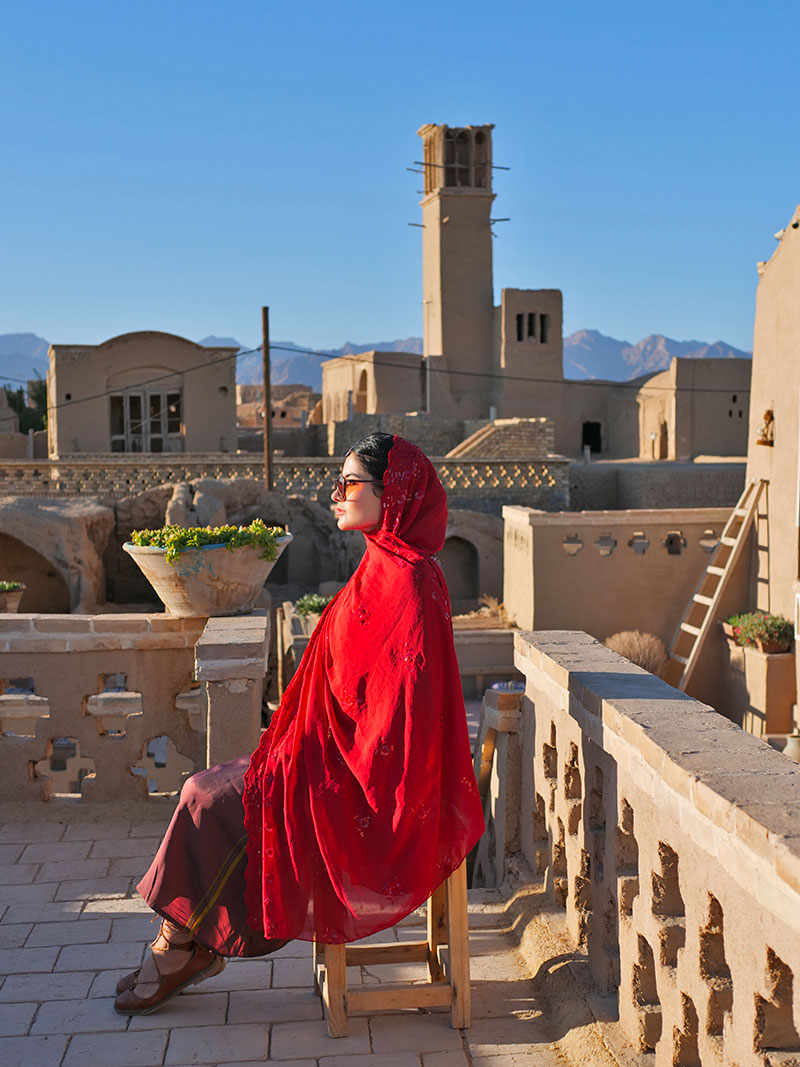
#5 The Pink Mosque/ Shiraz
The Pink Mosque or Nasir-Ol-Molk Mosque is a must-visit spot on the itinerary of every photographer visiting Shiraz. This mosque, with its stunning pieces of decorative coloured stained glasses, is an architectural phenomenon. When the sun shines through the window, a kaleidoscope of colours created through these stained glasses showcases an interplay of colour and lighting. Be prepared to show up right at opening hours or face the flock of enthusiastic photographers with their tripods on the floor, ready to capture a stunning shot.
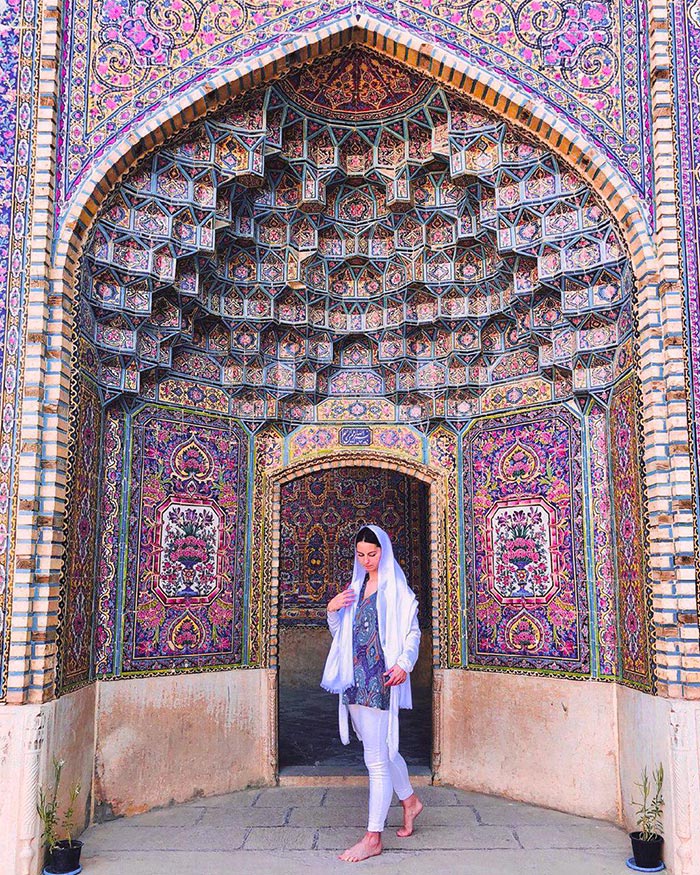
#4 Sar Agha Seyyed Village/ Zagros Mountain Range
The historical village of Sar Agha Seyyed in Chaharmahal and Bakhtiari province is an alluring mountain village built on rooftops and well known for its unusual architecture. It is 2500 meters above sea level. For more than thousands of years, Persian Nomads have stopped in this village on their way to summer or winter pastures, during migration. The culture of this tiny village is untouched and has maintained its traditional heritage for many years. The unique architecture of this rural village is one of a kind. Untouched by modernism, this 600-year-old colourful village provides fantastic photography opportunities like no other. As part of the Nomad trekking tour with TasteIran, explore what this exceptional destination has to offer.
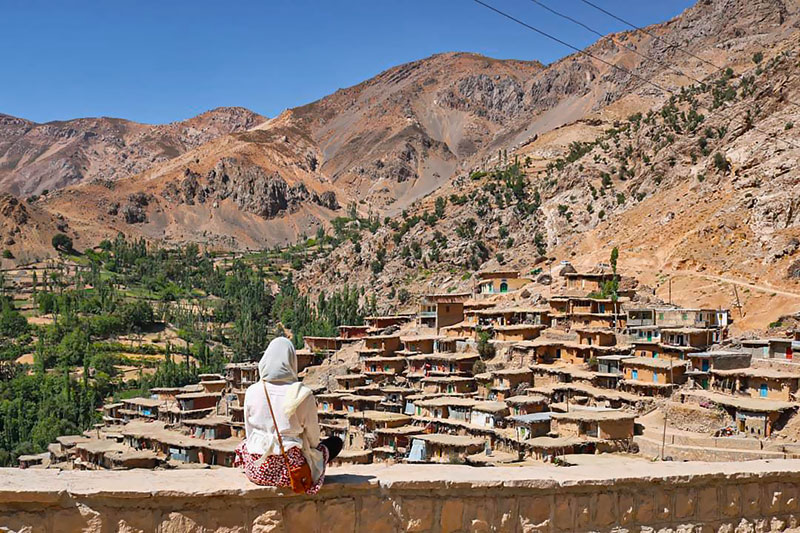
#3 Persepolis/ Province of Fars
The World Heritage site of Persepolis or Takh-E-Jamshid dates back as far as 500 BCE, and it used to be the ceremonial capital of the Achaemenid empire. Here, Darius the Great built a palace complex on a half-artificial, half-natural terrace, inspired by Mesopotamian models. Many traditional celebrations, such as the Nowruz festivities, were held at Persepolis. The massive striking columns, carved stones, inscriptions, ornamentations and sculptures are all tributes to the Achaemenid dynasty and the rich history of Persia. You can book TasteIran's full-day tour to visit this splendid structure and take endless shots from different angles at this historical site.
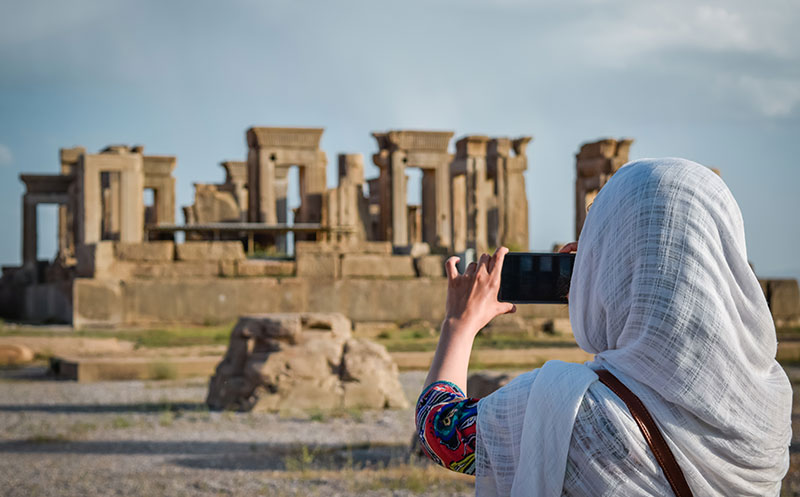
#2 The Lut Desert/ Southern Iran
The world's 25th largest desert, the Lut desert is located in the southeast of Iran. The vast area of the Lut desert is covered with never-ending sand dunes and undisturbed valleys and lava mountains. There are gigantic yardangs and sand formations, known as Kaluts. Kaluts stand tall between the endless gravel, creating a surreal landscape. The impressive grandiosity of the desert and the ongoing geological processes throughout different seasons create excellent photo opportunities for keen travellers. Join the ultimate visit to the second-largest desert in Iran within a day. Lut desert is a UNESCO-listed natural World Heritage of Iran.
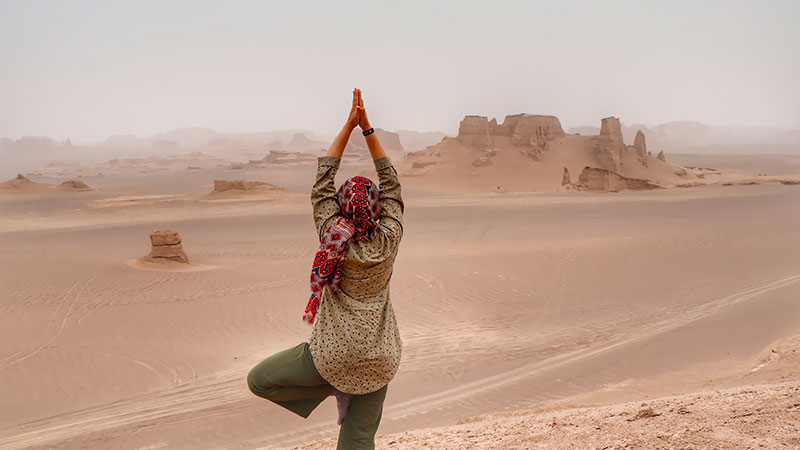
#1 Imam Mosque/ Isfahan
Imam Mosque (formerly known as Shah Mosque) is a part of the UNESCO World Heritage Site of Naqsh-e Jahan Square. The vaulted structure of the entry, the different hues of blue-coloured tiled walls in the interior and exterior of the building, the two minarets and the big dome are impressive architectural features of the Safavid dynasty. This magnificent building is an exceptional example of the Islamic architecture of Iran. The ornamentation is wholly traditional, repeating the Iranian motif of appeal for fertility and abundance. The best time to photograph is about 11:00 am when the sun is overhead. Pay attention to the opening hours of the mosque as the schedule is based on praying hours. You can enter Imam Mosque from 9:00 am to 11:30 am and from 13:00 to16:00 every day except Friday. On Friday you can schedule your visit between 13:00 till 16:00.
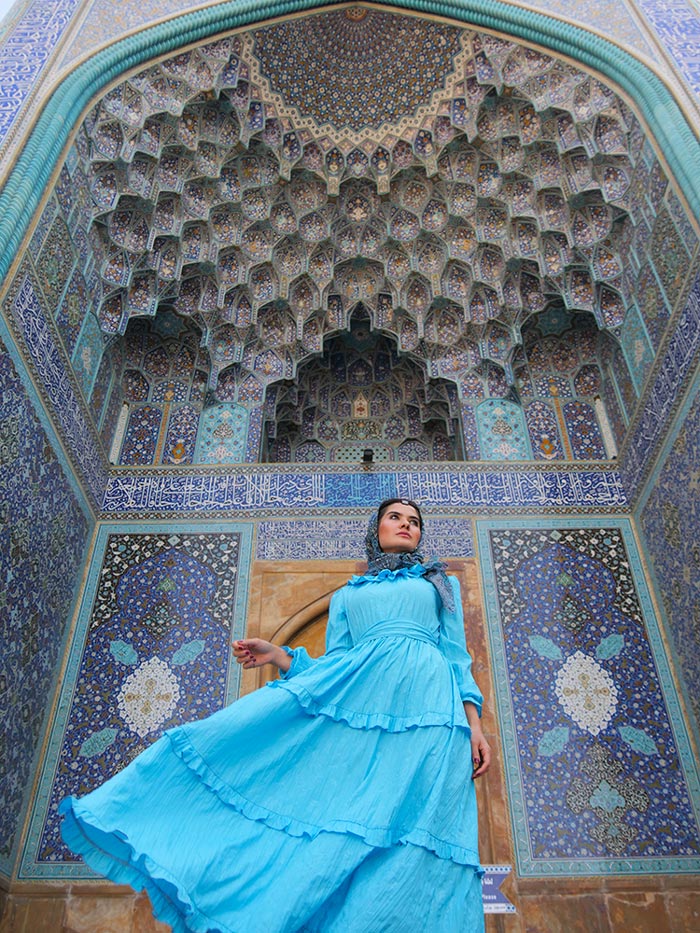
By Melika Shahid / TasteIran
